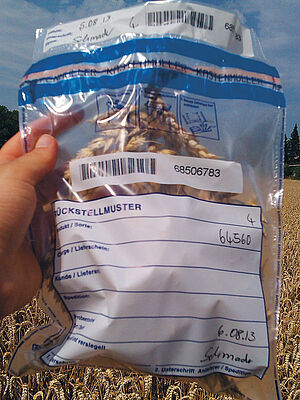With the growth of the organic sector, the demands on safety and professionalism are also rising. The risk of fraud increases the more popular organic products become. Manufacturers can score with safety and transparency. But this is costly and requires a lot of know-how. Practical solutions are needed to improve the safety of their goods.
FiBL develops such practical solutions. These include, among others, the organicXseeds seed database, an up-to-date platform for anyone offering or looking for organic seeds and seedlings as well as the database for organic animals organicXlivestock.
FiBL's "Betriebsmittelliste für die ökologische Produktion" (Input List for Organic Production) is a whitelist that provides transparency and certainty as to which fertilisers, pesticides, plant fortifiers, disinfectants, auxiliaries and additives etc. may be used in organic farming and the food industry.
Isotope analysis already enables manufacturers and retailers of some food items such as asparagus and champagne to check the regional origin of the products analytically. There is still a need for research in other areas. FiBL is working on further developing the methods. Data from the "Wasserzeichen” (Watermark) research project in Hesse are publicly available.
There have already been cases where companies continued to supply for months despite the withdrawal of their certificate. This is why FiBL Germany operates the bioC database together with various control bodies, BÖLW and IFOAM. Here, processing companies can check at any time without any doubt whether their suppliers have flawless certificates.
FiBL developed a technical solution to ensure complete traceability at all stages of the value chain. It even allows the identification of those involved in the value chain for composite foods such as fruit yoghurt or beer. Via the platform "Bio mit Gesicht" (Organic Farming with a Face) also consumers can find out who produced their potatoes, beer or cheese.




